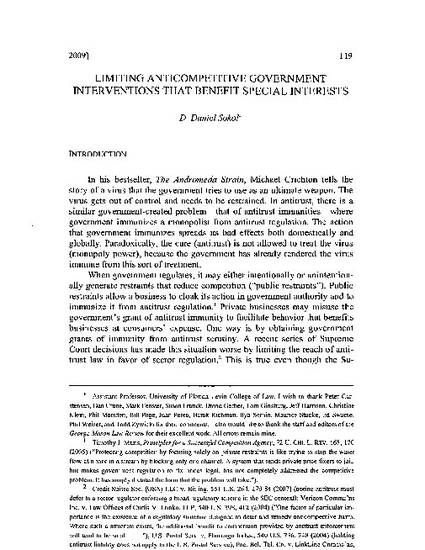
When government regulates, it may either intentionally or unintentionally generate restraints that reduce competition ("public restraints"). Public restraints allow a business to cloak its action in government authority and to immunize it from antitrust regulation. Private businesses may misuse the government's grant of antitrust immunity to facilitate behavior that benefits businesses at consumers' expense. One way is by obtaining government grants of immunity from antitrust scrutiny. A recent series of Supreme Court decisions has made this situation worse by limiting the reach of antitrust law in favor of sector regulation. This is true even though the Supreme Court refers to antitrust law as the "Magna Carta of free enterprise." Yet the choice of sector regulation over antitrust regulation may have deleterious effects on consumers.
This Article offers a new contribution to the extensive literature on the globalization of antitrust law. The present Article focuses both on the processes of creating public restraints, as well as upon the negative impacts of these restraints. Government can exempt a company from antitrust regulation, which allows the firm unbridled discretion to monopolize and harm consumers. Much of the literature focuses on the globalization of private anticompetitive conduct by businesses across jurisdictions. The focus of this Article, the issue of government intervention in the economy and its competitive impacts, has taken on renewed importance as the global financial crisis has led countries to provide various benefits to favored companies, which may distort competition. Distorting competition may keep the world in recession longer, as countries may retaliate with new distortions of their own, creating a downward spiral for the global economy. Thus, local "solutions" may cause international problems, and require international resolutions.
